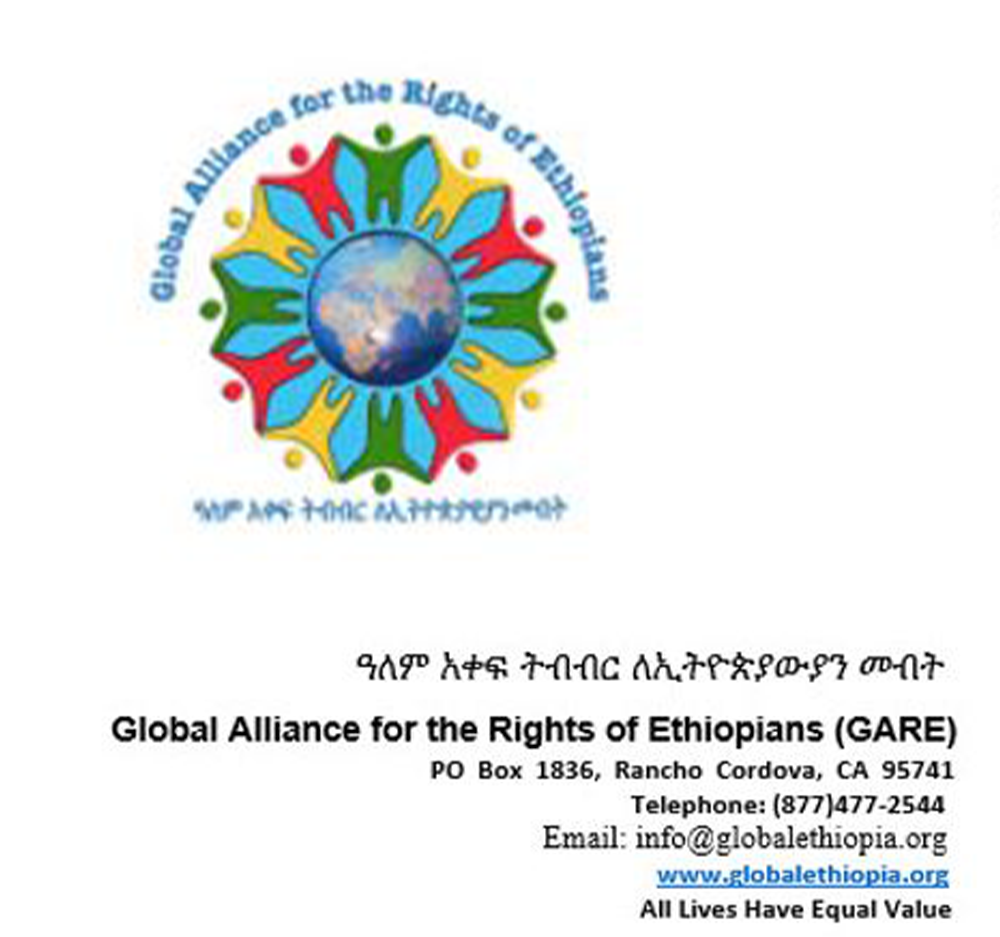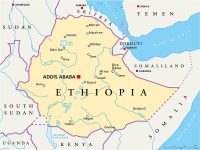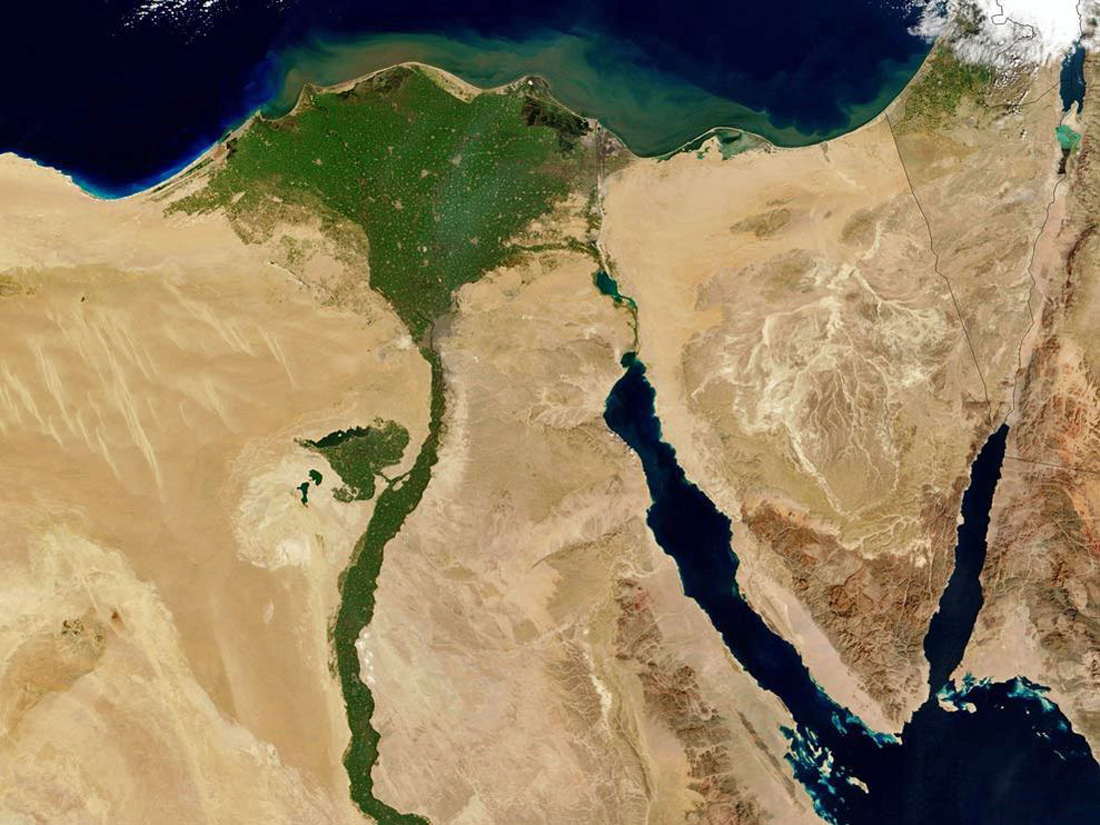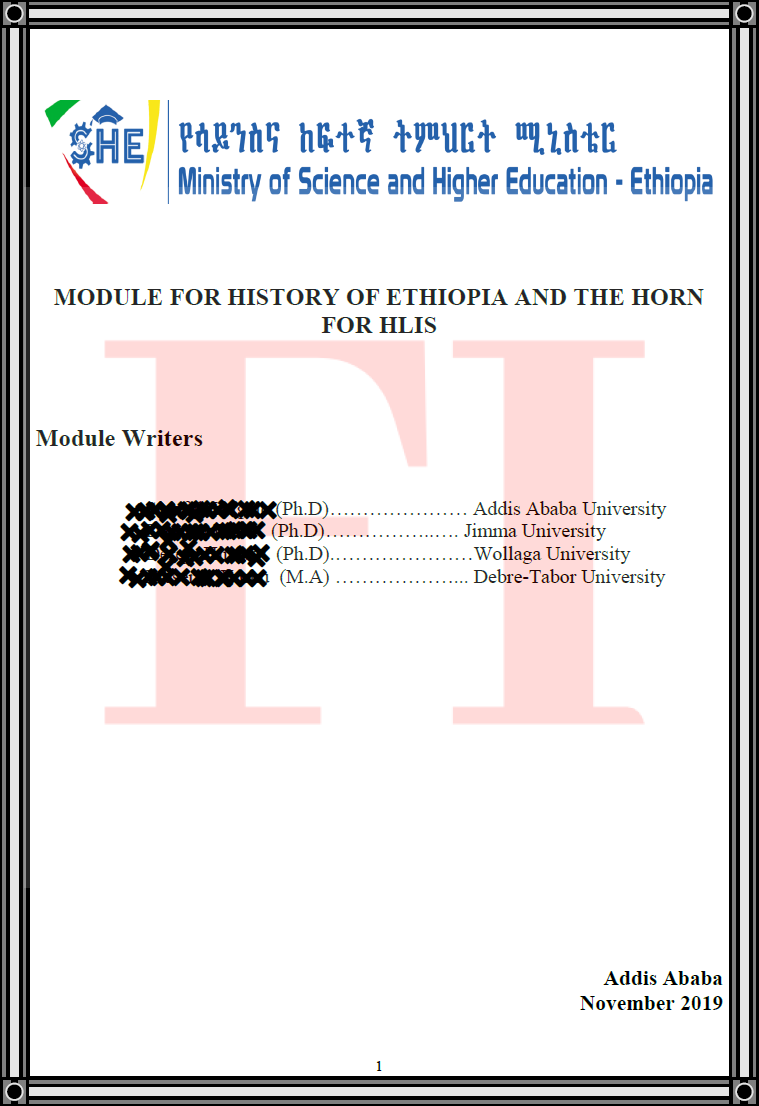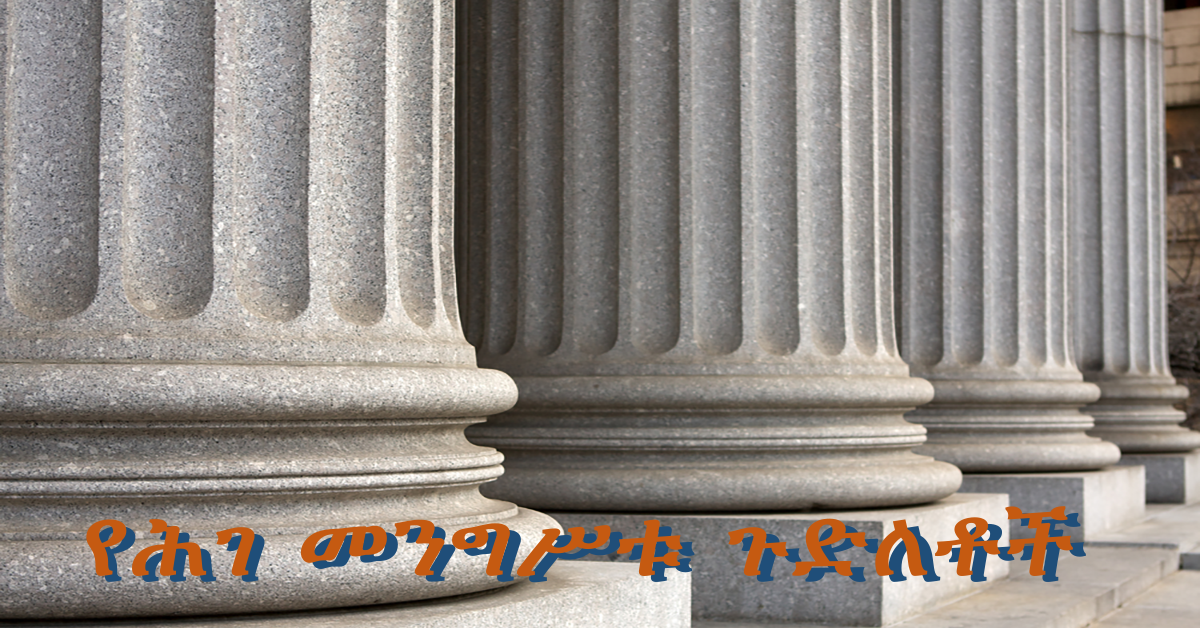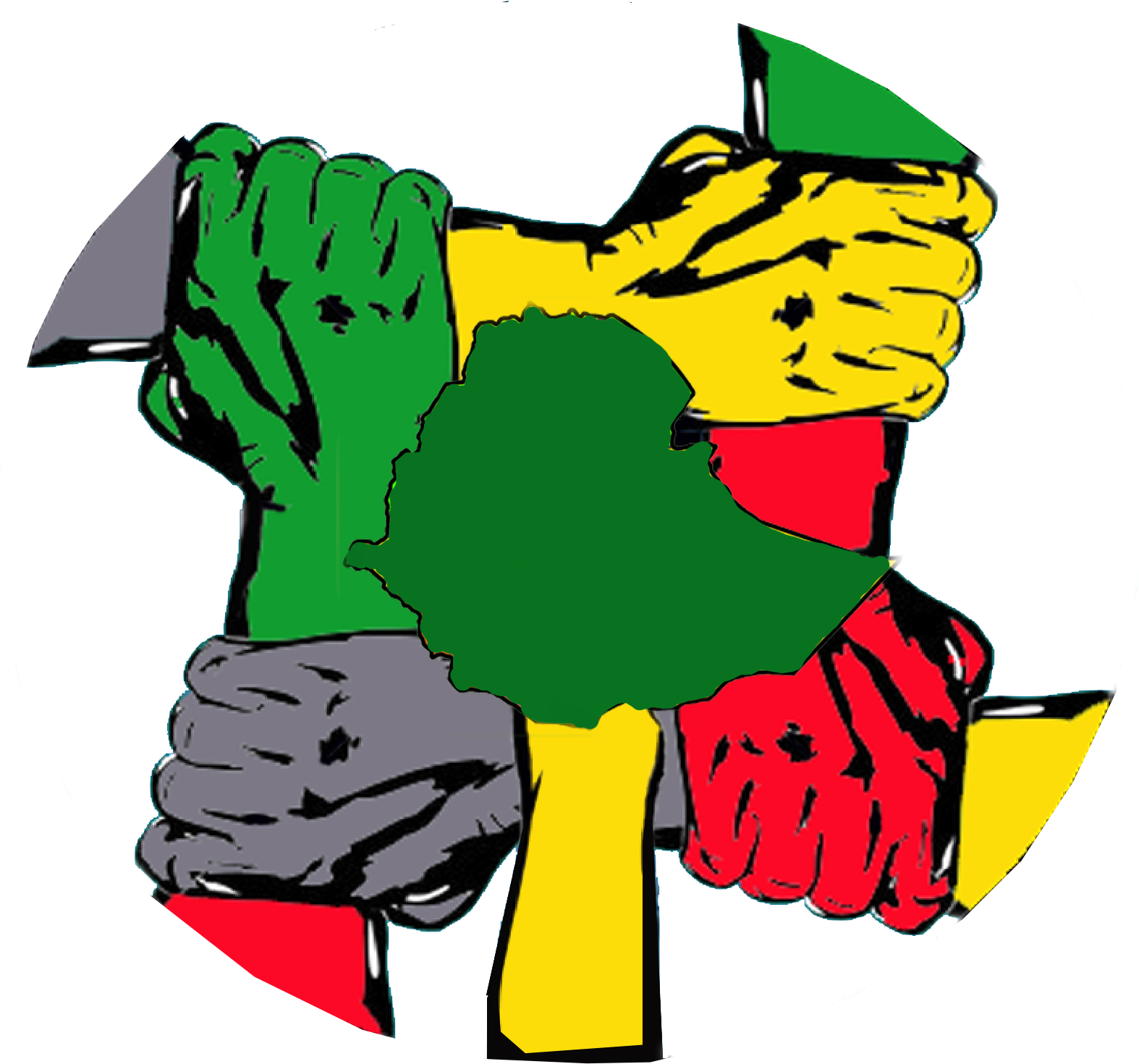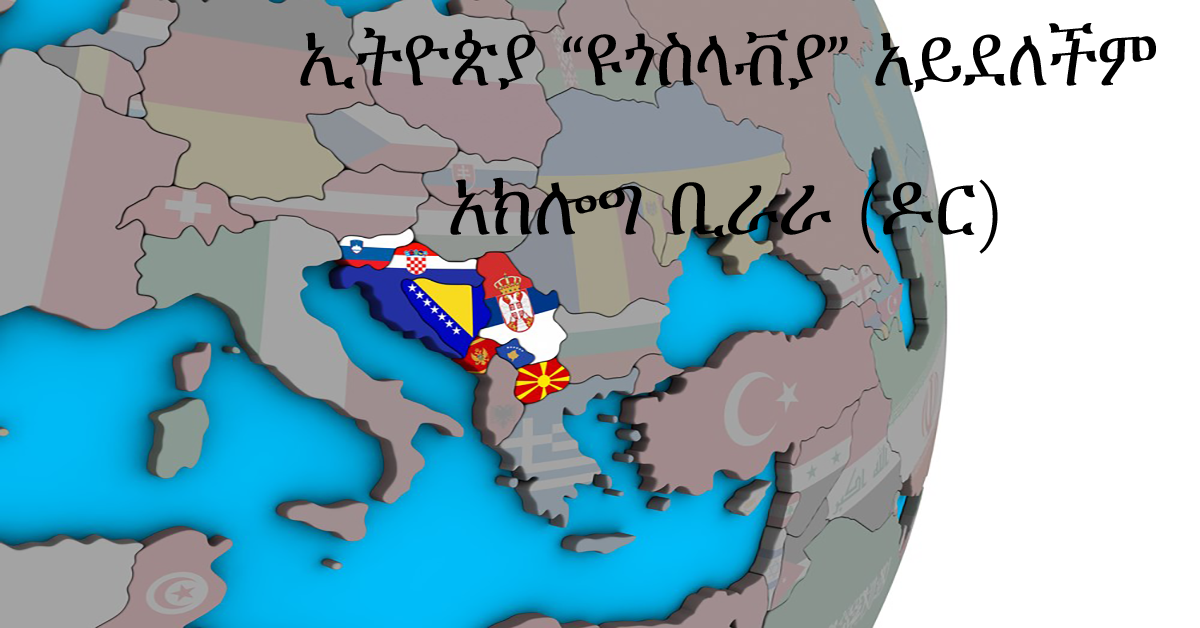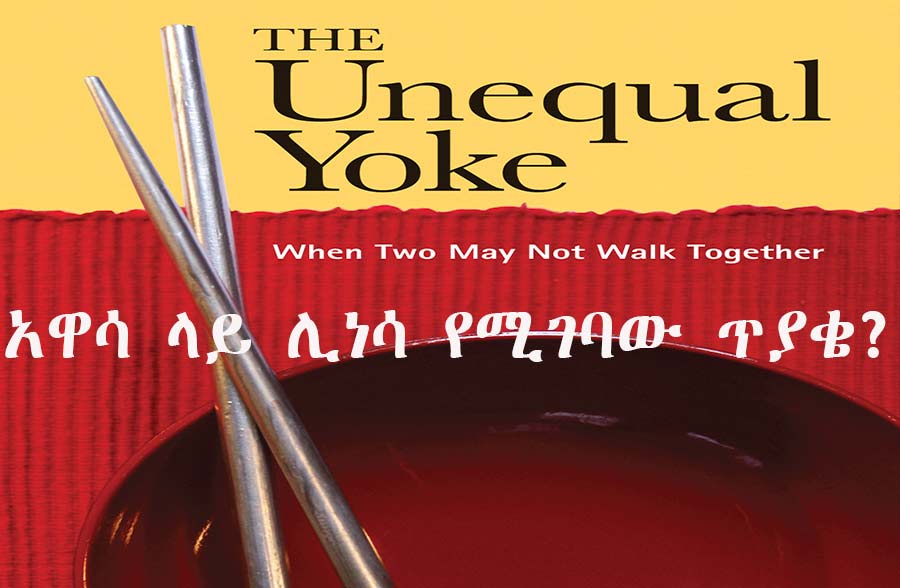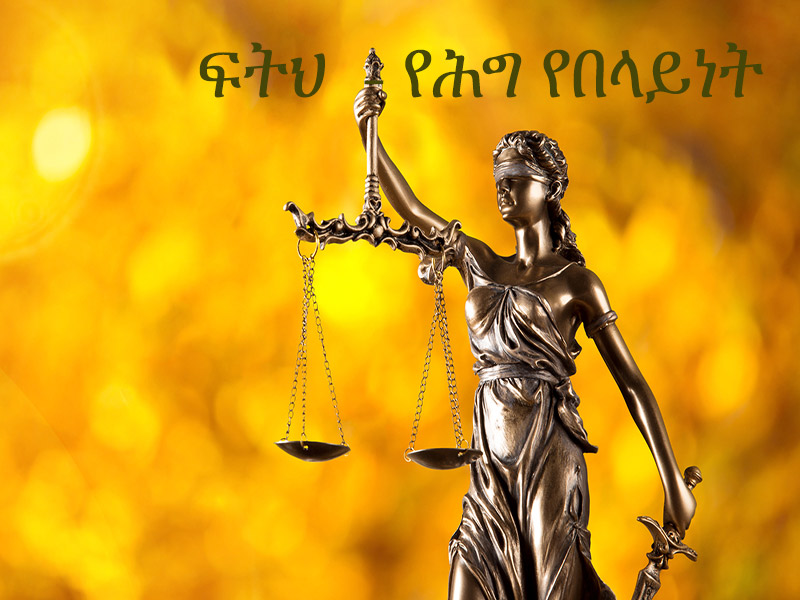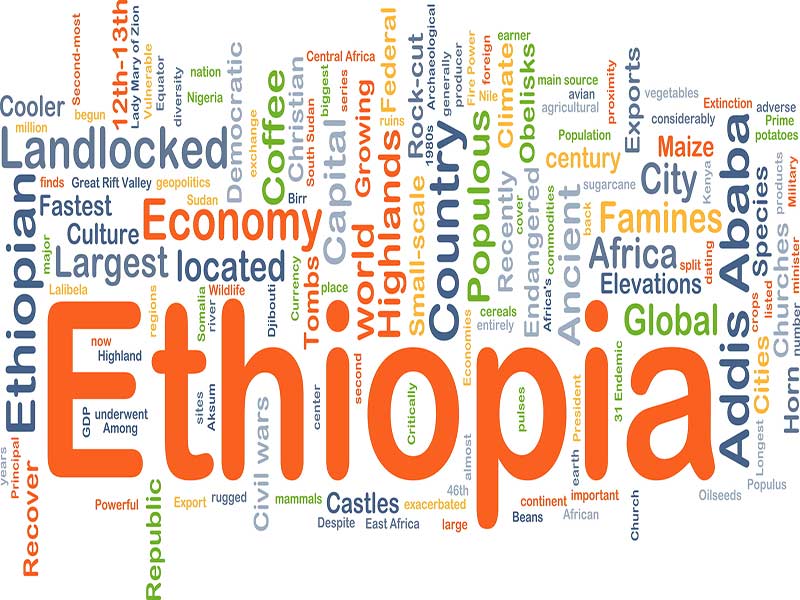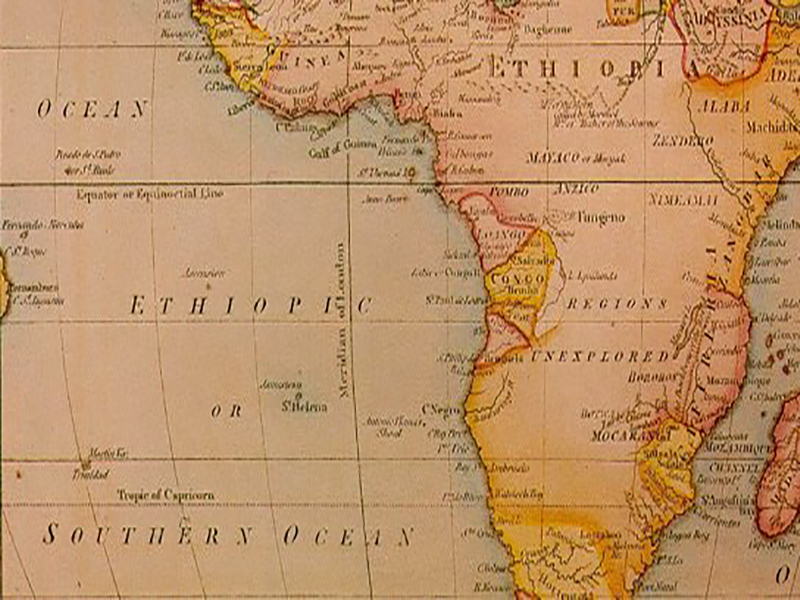ETHIOCRACY, Ethiopia’s Socially Responsible Market Economy By Abate Kassa
The purpose of this article is to encourage fellow Ethiopians to craft a new political economy for Ethiopia ሀገር-በቀል አዲስ የኢትዮጵያ ምጣኔ ሃብት ርዕዮተ-ዓለም ለመንደፍ, in the spirit of following our ancestor’s paradigm pioneering tradition like that of innovating the Ge’ez alphabet.
There is a world of developed and developing nations. Most of the developing nations in Africa emerged as independent nations only in the early 1960’s. Yet, Ethiopia, a country that prides itself on thousands of years of recorded history during which time it always enjoyed independence except for a five-year Italian occupation, also belongs among the developing nations. The year 1974 marked the end of monarchy in Ethiopia and the beginning of oligarchy. The political system that would be more appropriate for Ethiopia today in the light of its political culture, however, would be a polyarchy where power would be dispersed among competing political parties.
The main burden of evolving an appropriate model of development rests on a society itself by examining what it can learn from its own history and culture by a full comprehension of the constraints and opportunities available in its internal and external environments. Let us now review some of the key thoughts of such a new model for autonomous development. The path many developing countries have taken to develop their national economies is that of either the capitalist or the socialist model of developed societies, but most still suffer from abject poverty and economic decline; and Ethiopia is no exception.
Yet, both capitalism and socialism have many unresolved problems, and Arrigo Levi, a prominent Italian journalist, in “Failure Cannot Shatter the Socialist Dream,” Times of London, October 30, 1980, puts the matter bluntly as follows:
Socialists dream of a utopia, a classless society of equals with universal prosperity, and on top of that, perfect freedom for the individual. This utopia has never become real. The power of the socialist dream is so great that there are many otherwise quite intelligent people who have developed total blindness to the dismal failure of the Marxist theory of socialism. Marxist socialism has proved unable to offer either plenty, or equality, or freedom. The idea that the full state ownership of the means of production could be the basis of a socialist utopia clearly appears, today, as just a historical hallucination.
Historical experience has taught us that a socialist structure can only provide the basis for a centralized, totalitarian and intolerant political power. It deprives the workers of their union freedoms, and the consumers of their right of choice. It provides the worst possible system for the allocation of scarce resources. It slows down innovation. It condemns the economy to near stagnation.Suc h a stubborn insistence, on such patently wrong ideas, can only be produced by the fact that other ideas have been found to be equally unsatisfactory.
Indeed, the “mixed economy, welfare state” model, the dominant one in the West, in spite of its great historic achievements, keeps presenting great blemishes: inflation and unemployment; and there are glaring injustices and inequalities, profiteering, and greediness.
Therefore, both socialists and capitalists are more than ever in search of a better formula. In an insightful exposition on the “great competition” between capitalism and socialism, Richard L. Sklar in “Beyond Capitalism and Socialism in Africa,” The Journal of Modern African Studies, 26 (1988), pp. 14-15, 18, explains the dichotomy as follows:
Few sophisticated socialists today rate the “developmental merits” of socialism above those of capitalism; fewer still would dispute the short-term advantages of capitalism for societies at early stages of industrial development. Instead, they argue that socialism is morally superior to an economic system, such as capitalism, that depends upon the domination and exploitation of working people by a privileged class.
Socialism persists as an ideological and political movement, regardless of its failures, because capitalism is unilaterally identified with social injustice. Personal insecurity, social disorganization, and urban unemployment are the spectral witnesses of capitalism in Africa.
Still, three decades of trial and error, in Africa and elsewhere in the Third World, have also acquainted social reformers with the pitfalls of socialism. The hardest lesson for socialists to learn is one that Karl Marx taught better than anyone else. Plainly stated, there is no substitute for capital; it is the driving force of economic development. A second important lesson for socialists, one that cannot, alas, be learned from Marx, is that socialism lacks an adequate theory of incentives.
In sum, socialism needs capital and lacks a theory of incentives; capitalism needs the state and lacks a theory of social responsibility. The African economies need private capital, purposeful state participation, powerful incentives, and public responsibility for the general standard of living. These common requirements for social progress can only be met by judicious mixtures of capitalism and socialism.
The challenge is to question the validity of a restrictive political conception that limits developing nations to adopt an absolutist approach of either the capitalist or socialist model. My proposal dubbed Ethiocracy tries to break that paradigm by introducing a relativistic and pragmatic approach that benefits from the strengths of both models but starves their weaknesses.
The Dergue claimed socialism was the truth. TPLF/EPRDF claims ethnic federation as the truth. Both (closed societies) pursued delusion of perfection. Yet, Stephen Hawking told us, “One of the basic rules of the universe is that nothing is perfect. Perfection simply doesn’t exist. Without imperfection, neither you nor I would exist.” We witnessed that an extremist socialist economic policy was inappropriate for a pre-industrial peasant economy like that of Ethiopia. Nor is unfettered capitalism considered to be a viable alternative.
Recognizing the failure of socialism as a development theory and the failure of capitalism in its social responsibility, we ought to opt for a pragmatic economic system that makes its strengths effective and its weaknesses irrelevant. A “means/end” rationale may help to explain the dichotomy— capitalist in MEANS and socialist in END. Socialism as a philosophy is “directive;” it does not build bridges or make እንጀራ. Capitalism as a science is “productive;” it is a development theory. While the socialist mode of production largely follows a command economy, the capitalist model emphasizes market demands. While the socialist mode takes the form of collectivism, the capitalist stresses individualism. While the socialist system may be committed to maximum public ownership of the means of production, the capitalist may prefer maximum private ownership.
Ethiocracy on the other hand, follows pragmatism where ideas and actions are evaluated by their useful results, not on dogmatic ideological lines. Unlike the mixed economy model, Ethiocracy incorporates both capitalist and socialist ideas, but selectively based on the system’s capacity to deploy a pro-growth agenda that increases productivity by investing in talent, infrastructure, technology, fostering teamwork, promoting competition and innovation, enhancing global connectivity and mobilizing domestic savings and capital formation; enabled by genuine democracy, the rule of law, and utilitarian approach asserting morally correct actions. Ethiocracy incorporates the traditional cultural values of Ethiopia in order to make the full participation of the citizens effective because “culture eats strategy for breakfast.” Since culture should determine a political system, and not vice versa, and because political culture is the bedrock of everything that happens in a political system, it will be necessary to devise a system that has congruence with Ethiopia’s political culture, i.e., its fundamental system of beliefs, attitudes, values, and expressive symbols which define the situation in which political action takes place. I would like to underscore that Ethiopia invested thousands of years in the development of its political culture and it would be inappropriate to superimpose an alien experience onto a nation where the realities are completely different.
As Piero Gheddo argues in Why is the Third World Poor, the spiritual concept of development sees development as a human fact, and therefore one that is primarily cultural before it is technical or economic. Since it is man who is to grow and develop, as Ethiopian philosopher Zer’a Ya’iqob said, “man is the first agent of his own development;” and if development is to be authentic it must respect the cultural values proper to all people so that they may be able to evolve and to adapt to different conditions of life. Gheddo asserts that a country’s material progress cannot be paid for by the loss of the traditional culture that represents its identity.
You combine the best of capitalism and socialism plus the best of liberal democracy and social democracy, and you will get the new social, economic, and political policy of Ethiopia that I dubbed Ethiocracy, Ethiopia’s socially responsible market economy, ሀገር-በቀል አዲሱ የኢትዮጵያ ርዕዮተ-ዓለም. Ethio stands for Ethiopia and –cracy denotes a particular form of government or rule.
Hence, Ethiocracy is the Ethiopian way of government because our country should do it its own way! Ethiocracy is an embodiment of Ethiopia’s genuine democracy that recognizes the equality of all citizens, individual human rights, and the supremacy of law. It is the alternative to TPLF/EPRDF’s revolutionary democracy and developmental state policy which is undemocratic and inappropriate for the tribal-based political economy. The developmental state model worked for China and other states in Asia because they are not burdened by an ethnic federation policy. TPLF/EPRDF pursued a zero- sum politics of patronage through the instrument of Joseph Stalin’s ethnicity model. It used ethnicity as a means of accessing state power and accumulating personal wealth.
Ethiocracy would categorize the economic sectors into four clusters, namely, State Owned, Privately Owned, Cooperatively Owned, and Non-Owned Organizations.
- The Government Sector provides public infrastructure like roads, prisons, meteorology, police, passport office, postal service,
- The Private Sector which could be either closely held or market traded shares, delivers goods and services that are controlled by market
- The Cooperatively Owned economic sector refers to institutions controlled by Suppliers like agricultural cooperatives; or controlled by Customers like mutually held insurance companies or joint purchasing corporations; still others owned and controlled by
- The Non-Owned organizations consist of not-for-profit institutions such as non- government owned (NGOs), non-business owned (NBOs), and non-cooperatively owned (NCOs). In this category, you find professional societies, trade associations, charities, universities, hospitals, and the Red
One of the root causes for the implosion of the Soviet Union was that everything was state- owned. Success requires a balancing act where wider uses of all four forms of ownership are employed to achieve the triumph of balance. Governments that create markets are more successful in promoting growth than governments that try to replace markets. In the socially responsible market economy of Ethiocracy, the ethos of love and caring are balanced against the ethos of greed and selfishness that is embedded in the competitive market.
Market fundamentalists falsely believe that common interest is best served by unfettered pursuit of self-interest. Markets are not designed to address distributive justice. For example, corporations do not aim at creating employment; they employ people (as few and as cheaply as possible) to make profits. Firms compete in order to make profits, not to preserve competition, and if they could, they would eliminate all competition.
Instead of dogmatic rigidity, Ethiocracy follows pragmatic flexibility. Ethiocracy rejects the idea of the ideal form of government. There cannot be a perfect government in an imperfect world, but we do not have to settle for mediocrity either. Ethiocracy pursues a practical business-like approach to economic management. It develops and sets forth standards of increasingly excellent government that strives to provide its citizens protection, justice, and best government service at the least cost in resources. In its pursuit of excellence in government, Ethiocracy attains better standards and continues to improve public service as it is geared for change and does not allow itself to be stifled by ideological constraints. Unlike religion, in the political economy of Ethiocracy, ideas are always in flux and there is no place for doctrinaire ideology. Ethiocracy places a high premium on performance and achievement, expert knowledge, and the need for mutual gain through win-win collaboration.
Ethiocracy seeks to satisfy the “basic needs” of a poor nation by following flexible, creative, and non-dogmatic approach that embraces what is worth preserving in both capitalism and socialism. In so doing it rejects the politics of an all-out capitalism or socialism. In other words, it considers the dogmatic and formalistic approach of selecting one over the other as inappropriate or restrictive for a developing society. Therefore, to the extent that it opposes absolutism, Ethiocracy is non-ideological. Under Ethiocracy, participatory democracy, constitutionalism, good governance, sustainable development, and mandatory voting laws with elections held on either weekends or holidays will be the foundations of state order in Ethiopia.
In the light of the absolute monarchy in the past, and the one-party dominance of today, there is an imbalance between the development of the political and administrative institutions, with the imbalance favoring the latter. Therefore, there is a great need for launching soundly conceived institutional capacity building programs for “political development” to strengthen elements of the constitutive system, such as the legislature and political parties.
Fascist dictatorship (Italian), monarchical dictatorship, military dictatorship, proletarian dictatorship, and one-party dictatorship in succession have produced poverty and misery for Ethiopia. In the proposed socially responsible market economy dubbed Ethiocracy, the government derives its authority from the consent of the governed, given in free and frequent elections. The power of the government is further harnessed by a check-and-balance system, free press; and the political leadership will be elected from among the competing political parties. Furthermore, it will be “We the Citizens,” and not a vanguard party who will ordain and establish the new constitution. Ethiopia’s 110 million people of today comprising of 86 ethnic groups who speak 123 languages but one official language of Amharic have lived in harmony for a very long time ማለት እኛ ኢትዮጵያውያን ለዘመናት የመደመር ታሪክ ያለን ሕዝብ ነን። The current ethnic-federalist constitution that is designed to serve the political agenda of TPLF/EPRDF needs to be changed as it is intensifying polarization fueling ethnic conflicts instead of promoting the cultural values of peaceful co-existence.
Political change without economic change merely gives people freedom to complain about what they cannot do anything about. Let us, therefore, further address the economic side of the equation. The new economic policy of Ethiopia should aim to increase food production and end hunger. To do so, the social budget should be significantly greater than the defense budget without, of course, having an adverse effect on the security of the nation. This policy would stress a balanced development that begins with favoring agriculture, raw materials production, and light industry—a paradigm that makes prudent use of foreign investment and leaves sufficient room for private initiative. A new emphasis that needs to be given is the development of value-added labor-intensive manufacturing in the sugar, cotton, leather, and coffee industries.
The burden of debt of 59% of GDP makes development difficult. A debt relief scheme needs to be crafted for the debt overhang that will be inherited by the new government. The new economic policy anticipates a development financing that provides an infusion of capital similar to the Marshall Plan or European Recovery Program that was implemented following the Second World War. Such a reconstruction strategy would be relevant to Ethiopia today because many of the essential structures and institutions are in place or can be rehabilitated. Demand management strategy should be launched in order to inject government expenditures to stimulate demand and thereby bring about economic recovery. Such a strategy needs to be accompanied by a fiscal policy that alternates between corrective and propulsive orientation, fine tuning economic policies intended to produce desired outcomes. Accordingly, the general economic policy guides that should be pursued will include: the mobilization of resources by the employment of otherwise idle labor in public work programs to help raise productivity and provide purchasing power; impact investing (achieving sustainable financial returns while doing good for the community such caring for environmental concerns) and the promotion of savings which is essential for growth in GDP.
The new economic policy of Ethiopia should address the actual needs, interests, and hopes of the people, and expects the nation to conquer the widespread famine, disease, and illiteracy by the year 2038. According to Alemneh Dejene, land is relatively abundant in Ethiopia with an estimated 75 to 85 million hectares of agricultural land in Ethiopia. Findings from Arsi support Dessalegn Rahmato’s argument that about 5 hectares would be an appropriate size for most farmers to operate efficiently. In consideration of the long-established tradition of private holdings in Ethiopia and also in an effort to revitalize the agricultural sector, farm families should be allowed to own farms privately and be allowed to sell their produce in the free market. The new agricultural policy should aim to achieve a new program of “land to the tiller” as well as decontrolling of all prices coupled with low-term low-interest financing. In order to feed Ethiopia’s growing population, agricultural productivity will need to improve. Therefore, transformation from oxen ploughing to the adoption of modern agricultural appropriate technology must be a national priority initiative.
A system in which the state regulates, but private persons own and operate, has been extolled as combining the best of both worlds. While private ownership contributes its vaunted efficiency, because of the profit motive and competitive stimulus, state surveillance ensures that service and safety to the public is considered along with profit. Since a business will cease to exist if it continues to operate at a loss, and not make a profit, profit should be acknowledged as an important desideratum because business prosperity is vital to the nation’s well-being.
Furthermore, the public-private partnership (PPP) concept requires a special value-for-money (VfM) review in its application to infrastructure projects. While Ethiocracy accepts the classic economic theory that the marketplace can better evaluate the public’s needs than government, it also believes some things are too important to be left to the vagaries of the market. Therefore, some social regulation by government is required to provide a connective tissue between the needs of the public and the private sector. Private industry is entitled to make a reasonable profit; but its employees are also entitled to their health and safety; consumers are entitled to safe and well-made products; and the public is entitled to have its air, water, and quality of life safeguarded. The invisible hand doesn’t take care of everything; government needs to be proactive and accept responsibility for cities, climate change and the environment. Considering Ethiopia’s conditions today, Ethiocracy’s pragmatic alternative would be more appropriate, lying between the aberrations of socialism on the left and laissez-faire capitalism on the right.
Ethiocracy permits experimentation with policies that allow for private and state ownership to exist side-by-side, with the proviso that government should not do what private industry can do better. The government should be responsible to set up the regulatory and legal frameworks required for private investors to have confidence. The need is for both a healthy public sector and a healthy private sector. Therefore, Ethiocracy allows state ownership in the following situations: (a) services like transportation and water on which everybody depends; (b) key industries such as energy and power that are necessary and integral to the functioning of others; (c) some undertakings that require so much capital—either to start a new industry or modernize an old one—that the state alone may have the resources; and (d) whenever a monopoly is appropriate, such as power generation, because it is of the kind over which the public can have the most control by owning it through the state. Of course this is only a guideline, subject to parliamentary debate.
Beyond exercising political leadership, the ruling party in Ethiopia today is occupied directly in the technical and economic management of production. The over-bearing involvement of the political party bureaucracy extends to the equivalent role of board of directors in state enterprises. Party dominance destroys confidence, and stifles initiative of government administrators and enterprise managers. Therefore, party cells in all government offices and industrial plants must be abolished.
Poverty may not necessarily be evidence of personal failure. Workers who are underpaid, unemployed, or disabled could be impoverished through no fault of their own. It is at times the duty of the government to supplement workers’ income not as an act of charity but as an act of social justice. A comprehensive social security system should be developed which would be compatible with the state of the economy.
For a state or an enterprise, talent is its most valuable and reliable asset in institutional capacity building and with an outsize impact on organizational performance. Leadership development will be an investment in the future of Ethiopia and such training cost is soft infrastructural investment that can assure Ethiopia a return of maximum value-for-money (VfM). Therefore, Ethiocracy’s new national ethos of Ethiopia will be people-centered capable to unleash its human capital. By adopting a continuous improvement culture in business as well as government, political and economic leaders of Ethiopia will be able to optimize resources by doing work better, faster, and leaner. Talent is the engine that drives economic growth, and Ethiopia cannot eliminate poverty without first increasing and nurturing its intellectual capital. For instance, the future of our flag carrier Ethiopian Airlines doesn’t depend on its airplanes or route structure but on its people and their thinking abilities.
An important ministry that needs to be recognized in the area of the management of the economy is the Ministry of Finance. In view of the critical role this ministry plays in the national economy, the government must ensure that it is staffed with people of high standards of professionalism. Consideration should also be given to make the National Bank of Ethiopia independent of the government and responsible only to the Parliament.
Ethiopia is underdeveloped because it is under-managed. Ethiopia is an economic basket case (with millions still starving) not because her people failed, but because her leaders failed. What Ethiopia needs is leaders that measure up to her people’s greatness. I welcome Prime Minister Abiy Ahmed as the new inspirational and aspirational leader of Ethiopia. I feel he is the God-sent charismatic leader to help us streamline and accelerate the change process from the Current State (where the country is) through a Transition State to the Desired Future State (where the country should be). The status quo of despotism under TPLF/EPRDF is not acceptable because the regime is a personification of our common enemies of tyranny, poverty, disease, corruption, and inter-ethnic conflicts resulting in 1.4 million citizens internally displaced according to the Internal Displacement Monitoring Centre or IDMC. I am hoping Prime Minister Abiy will be able to use his soft power to transform Ethiopia from TPLF/EPRDF’s mafia economy and ethnic apartheid policy to genuine democracy where all citizens are equal before the law and their individual human rights are fully respected. ANC took issue with apartheid, not with whites, and was successful in fighting for the rights of all South Africans. We too need to do the same in dismantling ethnic apartheid and mandate the equality of all Ethiopian citizens and disallow the formation of political parties based on ethnic identity.
The appropriate mechanism or instrument for Prime Minister Abiy Ahmed to facilitate the transition process should be to follow his own mantra of መደመር and become our ድልድይ by engaging the citizens of Ethiopia in a participatory democracy. Accordingly, he should organize a National Constitutional Convention (prior to the next election) comprising of district delegates elected by popular votes and experts with relevant knowledge to assemble in order to debate and replace or amend the current constitution within 4 to 5 months and ratified by a referendum of the citizens. To expedite their research and for bench-marking purpose, the team can refer to this website https://www.constituteproject.org/ where all the constitutions in the world are published.
By the way, speaking of a new or an amended constitution, I have quarrel with the Amharic word ሕገ-መንግሥት for the word Constitution because it conjures up to me የዘውድ ሕገ- መንግሥት፣ የደርግ ሕገ-መንግሥት፣ እና የኢሕአዴግ ሕገ-መንግሥት። ርዕሰ-ብሔር እና ርዕሰ- መስተዳድር እንደምንለው I hope we will adopt የኢትዮጵያ ርዕሰ-ሕግ for the Ethiopian Constitution as that conveys the supreme law of the state and not of the government keeping in mind that ኢሕአዴግ ሕገ-መንግሥቱን የራሱ የድርጅታዊ ሰነድ ያደረገ፣ ወደ አንድ ወገን ያጋደለ ከፋፋይ አምባገነን ነው። ትግላችን ከሥዩመ-እግዚአብሔር ወደ ሥዩመ-ፓርቲ የተሸጋገረውን አሁን ወደ ሥዩመ-ሕዝብ ለማሳደግ፣ ከሕዝብ ለሕዝብና በሕዝብ ድምፅ የተመረጠና በሕግ የበላይነት የሚዳኝ ሕገ-ሕዝብ አስተዳደር ለመፍጠር ነው። መንግሥት እና አገርን አንድ አድርጎ የማየት ልማድም ማብቃት አለበት። A state is a sovereign entity that exercises its sovereignty through its government. A state is permanent whereas a government is temporary.
Before government (or civil society), there was the state of nature. Since everybody is primarily self-centered, we form governments to protect ourselves from one another. People rise against governments to exercise their right to self-preservation (natural right). Law must conform to human nature. The source of law must therefore be the people. Citizens must have not only the right but also the duty to overthrow an unjust government. As Thomas Aquinas said, “Resistance to a tyrant is obedience to the laws of God.”
The Ethiopian Diaspora that used to be ridiculed and ostracized by the late PM Meles Zenawi is now considered to be a hidden treasure and embraced by Prime Minister Abiy Ahmed who invited us to be engaged in the nation building process. By the way, due consideration needs to be given to enacting a dual citizenship law for the mutual benefit of both the state and the Ethiopian Diaspora and thereby enhance PM Abiy’s bridge-building effort. Visioning is about crafting Ethiocracy’s compelling desired future state of Ethiopia that is people centered and talent driven that could optimize the value of its human capital by creating the right kind of an enabling environment for its people to help Ethiopia accomplish what the immigrants of USA and American-Born-Chinese have achieved for their respective countries.
Ethiopia tried class politics under the Dergue and then ethnic politics under TPLF/EPRDF; it is now time for national politics where we put love of country before party. Political parties also serve their party best when they serve their country first. Political parties and civil society organizations as well as patriotic individuals should break with factional politics to fully respond to the mantra of “ዛሬ ትብብር፣ ነገ ውድድር.” It is time for collaboration to save Ethiopia first from the ruthless and repressive regime of TPLF/EPRDF. Accordingly, in preparation for the next election, I call upon opposition political parties to be on the right side of history and choose to make a difference by engaging in win-win collaboration and craft a party platform or manifesto that offers our citizens credible and viable alternative to TPLF/EPRDF.
TPLF/EPRDF is driven by the hate politics of ethnocentrism. Our driving force is the love of our country. Love will triumph over hate. Ethiocracy does not tolerate the toxic ethnocentric narrative. All Ethiopians have suffered under irresponsible, illegitimate and incompetent leaders for a long time. Ethiocracy looks forward and build a new Ethiopia under a new constitution with greater ideals of liberty, equality, and fraternity.
122 years ago at the Battle of Adwa, patriotic Ethiopians of all ethnic groups and all religions proved that Ethiopia is greater than the sum of its parts. We are fortunate that we have a glorious past such as a multi-ethnic nation-state, recognized as the cradle of humanity with our own Ge’ez alphabet and the Victory of Adwa, all representing our Ethiopian exceptionalism. But the challenge of the day is to make our own glory. Ethiopia’s history is best exemplified by unity in diversity that serves the common good. We are stronger together. When we are indivisible, we will be invincible. ብዙ ሆነን አንድ የሚያደርገን ኢትዮጵያዊነታችን ነው። ለኢትዮጵያውያን ልዩነታችን ጌጣችን፣ አንድነታችን ኃይላችን ነው።
The type of government that we could all be proud of was best described by Thomas Paine over two centuries ago: “When it shall be said in any country in the world, my poor are happy, neither ignorance nor distress is to be found among them; my jails are empty of prisoners, my streets of beggars; the aged are not in want; the taxes are not oppressive; the rational world is my friend, because I am the friend of its happiness. When these things can be said, then may that country boast of its Constitution and Government.”
Our compatriots at home have been incarcerated in droves and many others have sacrificed their lives in their political struggle to liberate Ethiopia from the tyrannical regime of TPLF/EPRDF. No government can fail completely for long and remain in power. Ethiopia will be liberated, and dictatorship will be replaced by democracy, because as the African saying goes, “Nobody can stop the rain!” Enjoy Kebebush Tesfaye’s poem: https://www.facebook.com/100000548352118/posts/2237052182989705/
Abate Kassa is the author of Value Analysis and Engineering Reengineered and የፋይዳ ትንታኔ እና ህንደሳ
I welcome your views about Ethiocracy. Thanks. kassa.abate@gmail.com


